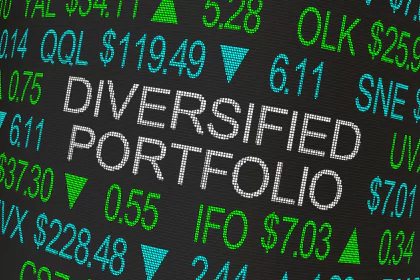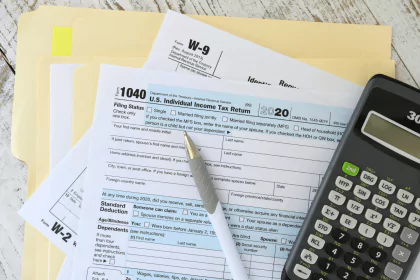Introduction
Are you making the most out of your 401(k) investments? Understanding which funds perform best can significantly impact your retirement savings. With many options available, selecting the top-performing 401(k) funds is crucial. This article explores the most effective strategies and current high-performing funds to help you optimize your 401(k) portfolio.
- Introduction
- What Are 401(k) Funds?
- Why Choose the Right 401(k) Funds?
- Types of 401(k) Funds
- Evaluating Fund Performance
- Current Best Performing 401(k) Funds
- Vanguard 500 Index Fund (VFIAX)
- Fidelity Contrafund (FCNTX)
- T. Rowe Price Blue Chip Growth Fund (TRBCX)
- American Funds Growth Fund of America (AGTHX)
- Strategies for Maximizing 401(k) Returns
- Conclusion
- FAQ — Popular Questions and Answers
What Are 401(k) Funds?
A 401(k) plan is a retirement savings account sponsored by an employer. It allows employees to save and invest a portion of their paycheck before taxes are taken out. Taxes aren’t paid until the money is withdrawn from the account. Employers often match contributions up to a certain percentage, which adds to the benefit of having a 401(k) plan.
Why Choose the Right 401(k) Funds?
Choosing the right funds for your 401(k) is essential because it determines how much your investments will grow over time. Different funds have varying levels of risk and return. By selecting high-performing funds, you can maximize your retirement savings and ensure a more comfortable future.
Types of 401(k) Funds
There are several types of funds you can invest in through your 401(k) plan:
- Mutual Funds: These are the most common investments in 401(k) plans. They pool money from many investors to purchase a diversified portfolio of stocks, bonds, or other securities.
- Index Funds: These funds track a specific market index, such as the S&P 500. They tend to have lower fees and provide steady returns that mirror the market.
- Target-Date Funds: Designed for investors planning to retire around a specific date, these funds automatically adjust the asset mix to become more conservative as the retirement date approaches.
- Bond Funds: These funds invest in a variety of bonds and are generally considered less risky than stock funds.
- Stock Funds: These invest primarily in stocks and have the potential for higher returns but come with higher risk.
Evaluating Fund Performance
When evaluating which funds to include in your 401(k), consider the following factors:
- Historical Performance: Look at the fund’s performance over the past five to ten years.
- Expense Ratios: Higher fees can eat into your returns, so look for funds with low expense ratios.
- Risk Level: Ensure the risk level of the fund matches your risk tolerance and retirement timeline.
- Management Team: A fund’s performance can be significantly influenced by its management team. Research the team’s track record and experience.
Current Best Performing 401(k) Funds
Vanguard 500 Index Fund (VFIAX)
The Vanguard 500 Index Fund is one of the most popular index funds available. It aims to track the performance of the S&P 500 index, which includes 500 of the largest companies in the U.S. This fund has a low expense ratio of 0.04%, making it an attractive option for many investors.
Fidelity Contrafund (FCNTX)
Fidelity Contrafund is a mutual fund that focuses on growth stocks, investing in companies with strong potential for capital appreciation. The fund has historically outperformed many of its peers, though it comes with a higher expense ratio of 0.85%.
T. Rowe Price Blue Chip Growth Fund (TRBCX)
This fund invests in large-cap growth stocks, targeting well-established companies with strong earnings growth potential. It has consistently performed well, although it has a higher expense ratio of 0.69%.
American Funds Growth Fund of America (AGTHX)
American Funds Growth Fund of America invests in both U.S. and international growth stocks. It aims for long-term growth of capital and has an expense ratio of 0.64%.
Strategies for Maximizing 401(k) Returns
- Diversify Your Investments: Spread your money across different types of funds to reduce risk.
- Rebalance Regularly: Periodically adjust your portfolio to maintain your desired asset allocation.
- Increase Contributions: Whenever possible, increase the percentage of your salary that goes into your 401(k).
- Take Full Advantage of Employer Match: Ensure you contribute enough to get the full match from your employer, as it’s essentially free money.
- Stay Informed: Keep up with financial news and trends to make informed decisions about your investments.
Conclusion
Maximizing your 401(k) returns involves selecting the right funds, regularly reviewing your portfolio, and staying informed about market trends. By understanding the types of funds available and how they perform, you can make smarter investment choices that will benefit you in retirement. Remember, the earlier you start and the more consistently you contribute, the better your chances of achieving your retirement goals.
FAQ — Popular Questions and Answers
A 401(k) plan is an employer-sponsored retirement savings account that allows employees to invest a portion of their paycheck before taxes are taken out, with taxes paid upon withdrawal.
Maximize your 401(k) returns by diversifying your investments, regularly rebalancing your portfolio, increasing contributions, taking full advantage of employer match, and staying informed about market trends.
Diversification helps spread risk across various asset types, reducing the impact of poor performance in any single investment and increasing the likelihood of stable returns over time.
When choosing 401(k) funds, consider historical performance, expense ratios, risk level, and the management team’s track record to ensure the fund aligns with your retirement goals.
Review and adjust your 401(k) investments at least once a year to ensure your asset allocation remains aligned with your risk tolerance and retirement objectives.












